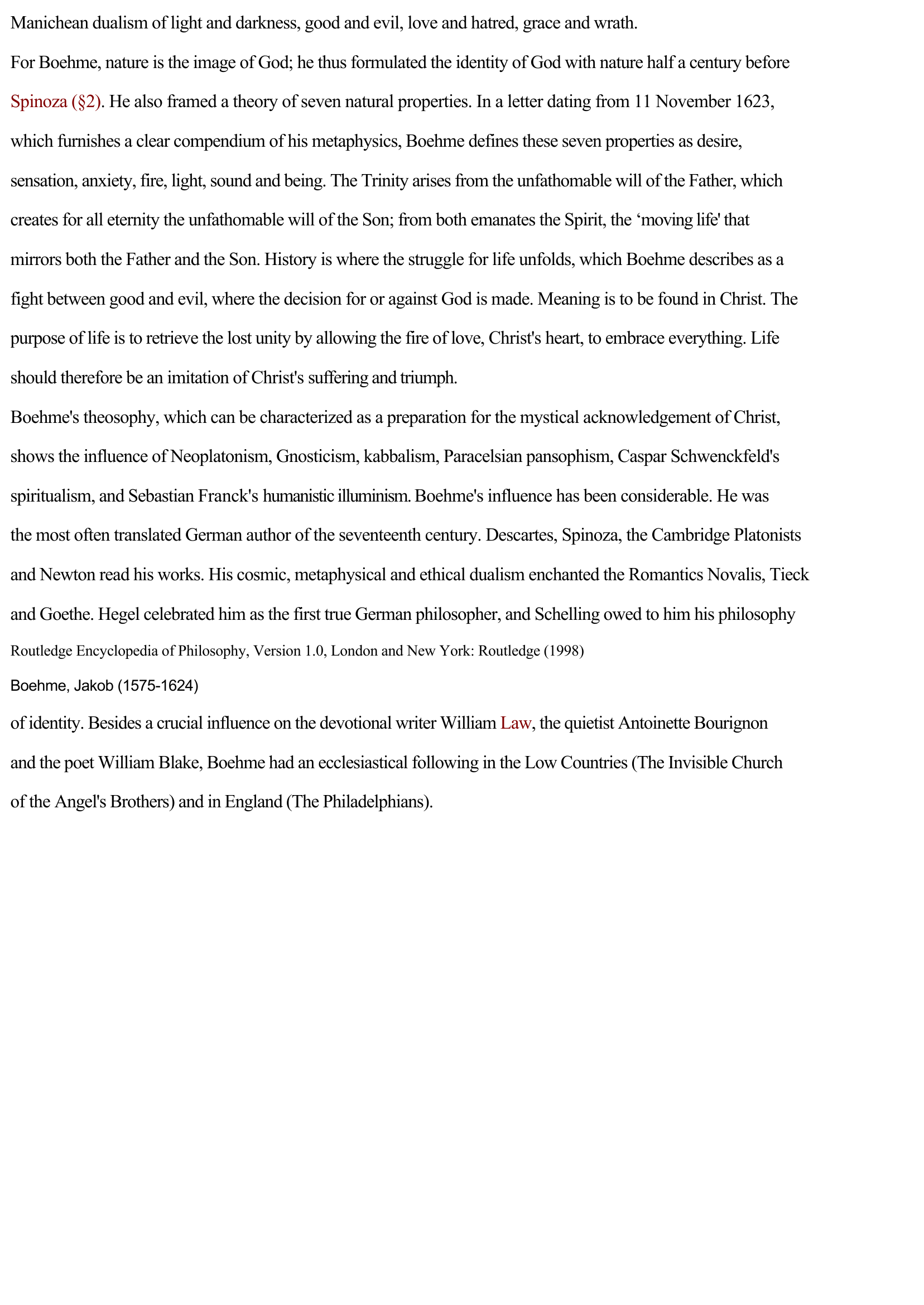Boehme, Jakob
Publié le 22/02/2012

Extrait du document
«
Manichean dualism of light and darkness, good and evil, love and hatred, grace and wrath.
For Boehme, nature is the image of God; he thus formulated the identity of God with nature half a century before
Spinoza (§2) .
He also framed a theory of seven natural properties.
In a letter dating from 11 November 1623,
which furnishes a clear compendium of his metaphysics, Boehme defines these seven properties as desire,
sensation, anxiety, fire, light, sound and being.
The Trinity arises from the unfathomable will of the Father, which
creates for all eternity the unfathomable will of the Son; from both emanates the Spirit, the ‘moving life' that
mirrors both the Father and the Son.
History is where the struggle for life unfolds, which Boehme describes as a
fight between good and evil, where the decision for or against God is made.
Meaning is to be found in Christ.
The
purpose of life is to retrieve the lost unity by allowing the fire of love, Christ's heart, to embrace everything.
Life
should therefore be an imitation of Christ's suffering and triumph.
Boehme's theosophy, which can be characterized as a preparation for the mystical acknowledgement of Christ,
shows the influence of Neoplatonism, Gnosticism, kabbalism, Paracelsian pansophism, Caspar Schwenckfeld's
spiritualism, and Sebastian Franck's humanistic illuminism.
Boehme's influence has been considerable.
He was
the most often translated German author of the seventeenth century.
Descartes, Spinoza, the Cambridge Platonists
and Newton read his works.
His cosmic, metaphysical and ethical dualism enchanted the Romantics Novalis, Tieck
and Goethe.
Hegel celebrated him as the first true German philosopher, and Schelling owed to him his philosophy
Routledge Encyclopedia of Philosophy, Version 1.0, London and New York: Routledge (1998)
Boehme, Jakob (1575-1624)
of identity.
Besides a crucial influence on the devotional writer William Law , the quietist Antoinette Bourignon
and the poet William Blake, Boehme had an ecclesiastical following in the Low Countries (The Invisible Church
of the Angel's Brothers) and in England (The Philadelphians)..
»
↓↓↓ APERÇU DU DOCUMENT ↓↓↓
Liens utiles
- Jakob Boehme (ou Böhme) 1575-1624 Il est traditionnellement considéré comme le grand représentant du courant mystique qui commence en Allemagne avec Maître Eckhart, vers la fin du XIIIe siècle.
- Biographie de BOEHME (Jakob).
- AVENTURES DE SIMPLEX SIMPLICISSIMUS (Les) (résumé & analyse) Hans Jakob Christoffel Grimmelshausen
- SCHUEDDERUMP (Le) de Wilhelm Raabe (Jakob Corvinus
- CIVILISATION EN ITALIE AU TEMPS DE LA RENAISSANCE (La) (résumé & analyse) Jakob Burckhardt

































